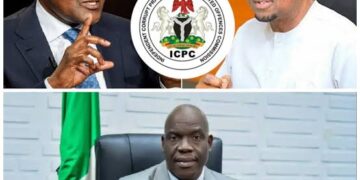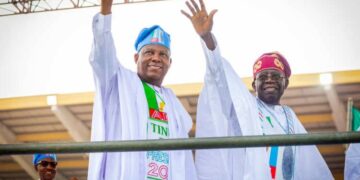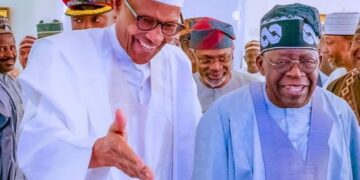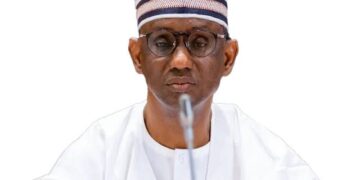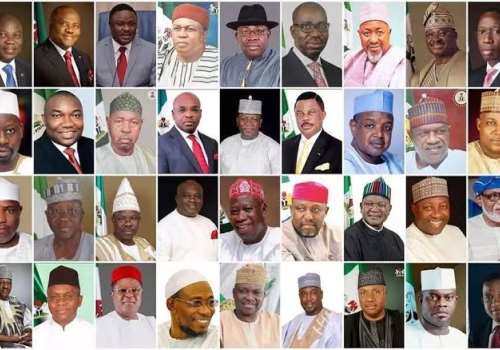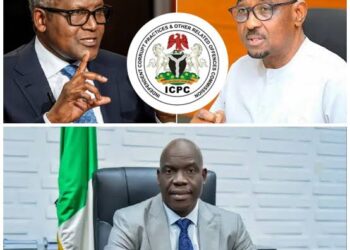In every thriving democracy, the strength of a nation lies not merely in the power of its leaders but in the courage, awareness, and vigilance of its citizens. Unfortunately, Nigeria today suffers not only from corruption and misgovernance, but from a deep-rooted culture of blind obedience that enables these ills to persist.
Blind obedience is the act of following orders or leaders without question, moral evaluation, or critical thought. While order and loyalty have their place in governance, unquestioning submission is dangerous—especially in a fragile democracy like Nigeria’s, where institutions are still evolving, and the rule of law is often secondary to political will.
A Familiar Pattern in Nigeria
In contemporary Nigerian politics, blind obedience is everywhere. Citizens pledge unwavering loyalty to political parties or ethnic champions, often at the expense of truth and justice. Public officials carry out illegal or unethical directives to protect their superiors or maintain their positions. Even religious and traditional leaders are sometimes complicit, providing spiritual or cultural cover for blatant abuse of power.
Supporters of politicians echo slogans, justify failures, and attack critics—not because they are uninformed, but because they have been conditioned to believe that loyalty to a person, party, or tribe is more important than loyalty to the nation. This mindset has created a dangerous feedback loop: the more blind the support, the bolder the impunity.
How It Manifests
1. Unquestioning Party Loyalty:
Political parties in Nigeria often demand absolute loyalty from their members and supporters. Debates on governance or accountability are quickly shut down as “betrayal” or “opposition propaganda,” silencing any possibility of reform from within.
2. Leader Worship and Cult of Personality:
Certain politicians are treated as messiahs. Their every action is defended, even when clearly unconstitutional or immoral. This discourages independent thinking and suppresses dissent, often violently.
3. Ethnic and Religious Manipulation:
Leaders frequently exploit Nigeria’s complex ethnic and religious makeup to polarize citizens. Supporters are urged to see critics as enemies of the tribe or faith, not as fellow citizens demanding better governance.
4. Compliance in the Civil Service and Security Agencies:
Many public servants carry out illegal orders—rigging elections, silencing protesters, or mismanaging public funds—believing their obedience protects their careers. The result is a public sector weakened by fear, sycophancy, and ineffectiveness.
The High Cost of Silence
Blind obedience has profound consequences for Nigerian society:
Corruption Thrives:
When leaders know they will not be challenged, they act with impunity. Misappropriation of public funds becomes routine.
Institutions Collapse:
Electoral commissions, anti-corruption agencies, and the judiciary become tools of the ruling elite instead of watchdogs of democracy.
Incompetence is Rewarded:
Rather than merit or performance, political loyalty becomes the basis for appointments and promotions.
Citizens Remain Divided:
When truth is replaced by tribal loyalty, national unity becomes impossible, and collective progress stalls.
Lessons from History and Research
The danger of blind obedience is not unique to Nigeria. History offers chilling lessons—from authoritarian regimes in Europe to genocidal movements in Africa—of what happens when people stop thinking and simply follow. The famous Milgram Experiment of the 1960s also proved how ordinary individuals can commit harm when directed by authority, even when it conflicts with their conscience.
Yet Nigeria’s situation is more urgent. In a country battling poverty, insecurity, inflation, and mass unemployment, citizens cannot afford the luxury of apathy or mindless loyalty. Every unasked question, every silenced voice, and every unchallenged lie brings the nation closer to the brink.
A Way Forward: Building Critical Citizenship
The antidote to blind obedience is critical citizenship—citizens who ask questions, hold leaders accountable, and are loyal to principles, not personalities.
To achieve this:
Political education must be made central in schools, religious institutions, and civic spaces.
Media and civil society must continue to promote fact-based reporting, analysis, and discourse.
Religious and traditional leaders must rise above politics and preach truth to power.
Youth movements must prioritize ideology and national interest over token appointments or party slogans.
Public servants must be empowered and protected to resist unlawful instructions.
Conclusion
Nigerians must begin to see that questioning authority is not rebellion—it is responsibility. Loyalty to the nation must come before loyalty to tribe, party, or person. Our leaders are not gods; they are public servants. And as long as we continue to obey blindly, we will be governed blindly.
In the words of the late Chinua Achebe, “The trouble with Nigeria is simply and squarely a failure of leadership.” But leadership cannot thrive in a vacuum—it is shaped by the character of the people who follow. The time has come to raise a new generation of followers—not blind, but bold, informed, and principled.
About the Author:
Frank Odion Apokwu is a Nigerian public affairs analyst and civic educator dedicated to advancing political literacy, good governance, and social impact through public commentary, media content, and community engagement.

